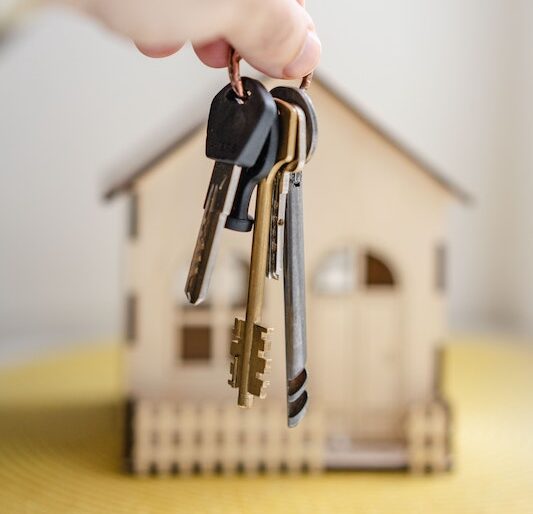
Buying a house is probably the single more terrifying (yet exciting) thing you will do in your lifetime, and ensuring that you make the most sensible purchase, with the best possible mortgage to support your purchase is essential. Your mortgage will constitute the most significant and most meaningful transaction that you make in your lifetime, watching yourself and your family blossom within the house’s four walls, creating memories that will last a lifetime and beyond and turn your house into a home. It will also cost you a lot of money, so securing the right mortgage is incredibly important.
Thanks to an improving economy and lack of availability, house prices are rising and consequently, so are mortgage rates, so the clock is ticking. If you have the savings needed to provide a deposit for a mortgage and are ready to take that leap, but have issues relating to your credit score then read on to find out methods for which you can still successfully be accepted for a mortgage with bad credit.
Remember, the bigger the deposit, the better. Being able to provide a higher percentage of deposit gives you a better chance of being accepted for a mortgage, as you are less of a risk to lenders. You’ll also take advantage of the lowest interest rates.
What are the advantages of having a mortgage if you have bad credit?

For the vast majority of people nowadays, buying a property without a mortgage to support your initial investment is near impossible. Having the resources to pay out a lump sum in the current property market is something that is reserved for only a small proportion of people. For most people, putting down the money for a mortgage will be the largest investment that they make in their lifetime, and the mortgage that they take out will be their most considerable debt.
Gets you on the housing ladder
Taking out a mortgage and buying a property will ultimately allow you to take that first step onto the property ladder and away from the perils of renting a property.
When taking out a mortgage, unlike a bank loan or a credit card loan, you cannot borrow the full purchase price – you must have a deposit, usually at least 5% but more often considerably more, to lay down against the mortgage amount. The greater deposit you have the lower rates will be.
Low deposit
The deposit required to take out a mortgage takes into consideration a number of things, with the value of the house you wish to buy and your credit rating score being significant factors in how likely you are to have a higher rate mortgage accepted. If you have ‘bad credit’, then it is highly likely that you will need to be able to offer a considerably larger initial deposit to increase your chances of being accepted, and to show your lender that the risk of accepting your application is reduced.
Taking out a mortgage over other types of loan is beneficial for a number of reasons, but principally because of the fact that it makes homeownership affordable. The initial payment required to purchase a house through mortgage methods is considerably smaller than the lump sum required in the past. With banks and building societies offering mortgages with 5% deposits, there has never been a better or more affordable time to get on the property ladder.
If you’re looking to for a buy to let mortgage with bad credit then different rules apply as these types of mortgages are unregulated. BTL mortgages will require higher deposits starting from around 20% or 80% LTV.
Cost effective
Borrowing money for property purchase through use of a mortgage is the most cost-effective way of buying – interest repayments on the loan is significantly lower than other types of loans because of the fact that your loan is secured against the property itself. If for whatever reason, something was to go wrong and you defaulted on your payments, the bank or building society would have the security to resell and pay back the mortgage.
Improve credit rating
Having bad credit and taking out a mortgage is beneficial for a number of reasons. Most apparent is because of the fact that doing so is a way of improving your credit score. Mortgages are, of course, loans like any other and being accepted for one is a sure-fire way of improving your defaulted credit score, giving you the further opportunity for credit opportunities in the future, as long as you successfully pay your mortgage instalments on time and do not default on a payment.
Help to buy schemes
There are a number of government schemes available to buyers with poor credit to assist them in getting a mortgage, including the Help to Buy scheme, Funding for Lending and New Buy schemes. The benefits of these schemes are paramount.
Schemes such as the Help to Buy Equity Loan gives you a route onto the property ladder and assists in putting down a larger deposit- as a customer you will require a 5% deposit which will then be accompanied by a loan of up to 20% from the government. You should then cover the remaining 75% of the property cost with a mortgage. These are discussed in more detail further on in this guide.
You’ll be better off in the same job if you’re considering taking out a mortgage. If you’re thinking of having a career change or moving to a different company, then wait until your mortgage application has been finalised and you have successfully purchased your home. Lenders like consistency and to know that they are lending to people with loyalty towards their employers and have a steady income.
What are the disadvantages of having a mortgage if you have bad credit?
As is the case with anything, advantages can often be outweighed by disadvantages, and of course, there are disadvantages to taking out a mortgage. Because of the immense loan, you will be taking out; it is understandable that a significant amount of interest will accompany the amount you borrow. Consequently, at the end of your mortgage duration, the amount you have paid back will be considerably more than the amount you borrowed, even over 25 years. Additionally, interest rates are forever fluctuating, which means that you could end up paying more than you expected when you took out the mortgage.
Risk of repossession
If you have bad credit, it may well be because you had previously defaulted on payments and it is easy to fall back into bad habits. Keeping up with repayments is important – failing to do so could mean that you lose your home and the money you have invested in it. Repossession is a serious matter, and if you are unsure about whether you’re going to be able to make a repayment, you should speak directly to your lender as soon as possible.
Doing so may ensure that they find a way to help you – not doing so runs the risk of having your home repossessed. As is the case with anything with value, the market can go down as well as up – taking out a mortgage on a house is no guarantee that you will get the same amount of money back when selling and you may find that you lose money on your investment when selling.
Don’t stretch yourself if you think you’ll struggle with repayments. Ensure that you have well-budgeted for a mortgage and only purchase a property which you will be able to afford easily. Not doing so runs the risk of payments being defaulted and your house being repossessed, or else not being offered the mortgage in the first place. A good mortgage broker or financial advisor can help with this.
What are the alternatives to a mortgage?
If you’re still unsure about whether getting a mortgage is right for you, then there are a number of alternatives that you could consider, particularly if your credit rating doesn’t leave you open to the best offers.
Shared Ownership
There are a number of shared ownership schemes available, including a government-led scheme where you own part of the property and pay rent on the other part – this part would normally be owned by the local council or else a local housing trust. While this may still require a mortgage, it will be significantly less than applying for 100% ownership of a home.
Joint Tenancy
If you have a substantial deposit, you could look into the possibility of joint tenancy – where you and another tenant purchase a house together, with shared, equal rights to the entire property. This option does come with a contingency plan – if you or the equal tenant were to die, the entire property would be passed over to the surviving tenant, meaning that it would not be possible to leave the property to your dependents in a will.
On the other hand, becoming a ‘tenant in common’ with someone removes this risk – tenants in common own different, agreed shares of the property and this share would not automatically transfer if you do perish. This provides a more flexible option as financial outlay is shared.
Try not to make too many mortgage applications, as this can negatively affect your credit score. You can ask for advice off lenders if you are unsure which mortgage would be most suited to you and doing so will not directly affect your credit score. A mortgage broker can obtain a decision in principle and advise you on the best lender to suit your circumstances.
What do I need to get a mortgage if I have bad credit?
If you’re thinking about getting a mortgage, then naturally you need to start considering which factors will affect your application. You need to be able to provide a record of regular work, whether this be through employment or self-employment, proving that you have the means to cover your mortgage’s monthly repayments.
Your job
If you’re considering changing jobs, it’s probably best to do so after you have secured a mortgage as lenders prefer to see consistency in employment when making decisions about whether to approve a mortgage or not.
Work out your budget
Before approaching lenders, you should take the responsibility to do the maths and work out what you can afford to repay on a monthly basis. You should also consider how much extra money you will need to cover solicitors’ fees and other costs outside of the mortgage deposit, particularly if you have poor credit and have to offer a significantly larger initial deposit.
Suitable deposit
Banks and building societies do require this large down payment as a deposit – usually to the sum of 5% but often more, depending on your circumstances, so ensuring that you have this to hand when you start exploring your options will definitely speed up the process. Affordability checks will be carried out by all lenders, so it would be helpful to have evidence of utility bills, loan statements, receipts from supermarket spends to confirm that you can afford this additional payment.
Credit Rating
Before applying for your mortgage, you should get a copy of your credit report. You can do this by approaching credit reference services such as Experian or Equifax, although it’s important to note that different reference services use different methods of measuring credit, so your scores may well differ. Obtaining your credit score will allow you to see anything that the lenders you approach about getting a mortgage will be able to see. It also gives you the chance to improve your score if need be, which may well be the case if you have a history of poor credit. There are a number of things that you can do to improve your credit score if your score doesn’t quite live up to the lender’s expectations, but be assured that having bad credit does not mean you cannot take out a mortgage.
Fail to prepare? Prepare to fail. Ensure that you have all the supporting documents needed to successfully apply for a mortgage ready and available. Documents include records of employment (such as a P60 form), utility bills, bank statements, previous pay slips and a passport or driving licence to prove your identity. If you’re self employed you’ll need records of your SA302 documents and business accounts.
What is a credit rating?
Everyone has a credit rating, even if you’re not aware of it. Credit rating is a tool used by lenders that determines whether or not you qualify for a particular credit card, loan, mortgage or alternative service. This ‘score’ indicates what type of borrower you are and how well you will manage your repayments, based on repayment history and previous loans.
Having a higher credit score signifies to lenders that you are of lower risk and consequently, you are more likely to be given credit than someone who has bad or limited credit.
Different lenders use different systems for scoring credit, so it’s important to shop around and see what could be offered to you. While you might not meet the criteria for one particular lender, another may well accept your application because they have more lenient scoring systems. If you are rejected for a specific credit service, find out why you were turned down before applying elsewhere and remember that carrying out too many credit applications can be negatively viewed by lenders.
Improve your credit score
Improving your credit is possible, and something that could be essential when securing your mortgage offer – having this good credit score indicates responsible borrowing, so it’s important to ensure that anything held on your credit record is accurate. Updating your address on the electoral register, for example, when you relocate keeps your credit rating up to date and consistent.
It’s important to note that loans taken out through the student loans company do not directly affect your credit rating because these loans are automatically deducted from your income at a fixed percentage after graduation.
You need to have a mortgage in principle that tells you as a borrower how much a mortgage lender is willing to offer you. This decision lasts for a set duration of time usually 6 months in which you can make an offer on a property. Remember, this decision in principle doesn’t necessarily guarantee the size of the loan that will be offered, or even if the lender will lend at all. A full mortgage application must be made to secure this.
So, what exactly is bad credit?
While in an ideal world, everyone would have excellent credit scores, that is definitely not the case, and often people find themselves in bad credit and have been previously refused a mortgage. Credit scores can be described as being bad for reasons such as,
- If you have accounts in arrears
- Have previously declared bankruptcy
- You have CCJ’s (county court judgements)
- Undertaken debt management plans
- You do not have enough credit history.
Not having credit, whether this is in the form of credit cards, a phone contract or personal loans can be as detrimental to your credit score as neglecting payments on your credit.
Not enough credit history?
Having limited credit can be problematic for a number of reasons, particularly in the case of a mortgage where the required amount of credit is significantly large. Having no credit history makes you an unknown entity to lenders and puts you on the same stead as someone with bad credit.
No history makes you a risk to banks and building societies, and you would be unlikely to qualify for better deals, meaning that you would have to pay more to get the same as someone with good credit.
Remember to take into consideration any fees that will be added when saving your deposit for your mortgage. Fees can be steep, often running into the thousands and cover solicitors and stamp duty fees.
What happens if I have bad credit?
Having a bad credit score is not the end of the world, even if it may well seem as though it is; there are a number of options for people who find themselves in this situation. If you’re having trouble being accepted for a ‘traditional’ mortgage, then an alternative solution is what is referred to as a guarantor mortgage.
Help from a guarantor

Get a mortgage with help from a guarantor
Previously referred to as a ‘family mortgage’, or else a ‘springboard mortgage’, this mortgage offers an alternative to those who need a little ‘leg up’ onto the property ladder – this leg up would be offered to them by a friend or family member, and bypasses checks carried out by lenders regarding credit and other financial situations. These types of mortgages are also a good option for first time buyers who would struggle to get a mortgage on their own.
Barclay’s family springboard mortgage product
 Available via broker only
Available via broker only
Barclays
LTV
100%
Initial Rate
2.69%
Standard Rate (SVR)
2.99%
APRC
3.0%
Type
Guarantor Mortgage
Barclays have a selection of high 100% loan to value guarantor mortgage options for customers with no deposit. Their spring board mortgage helps customers get a mortgage with the help of a family member.
If you choose to take out a mortgage with a guarantor, this person will be named on the mortgage instead of you, although they will neither be named on the title deeds nor own a share of the property itself- they are simply used as a security blanket for lenders.
If you fail to make a payment on the mortgage, this guarantor will be held to account and face the responsibility of your missed payment. Consequently, if they are unable to pay, they risk losing their own home through repossession- lenders are able to place what they call a ‘charge’ on the guarantor’s property. Naturally, such a mortgage requires a certain element of trust and guarantee and should not be taken out lightly, with the key to success being honesty and communication.
Aldermore guarantor mortgage product
 Available via broker only
Available via broker only
Aldermore
LTV
100%
Initial Rate
5.18%
Standard Rate (SVR)
5.73%
APRC
5.9%
Type
Guarantor Mortgage
Aldermore provide a family guarantee mortgage that allows you to get a mortgage without a deposit. Aldermore will require a guarantee against the home of your parents or grandparents for additonal security against your mortgage.
Guarantor mortgages are different to traditional mortgages in the sense that they do not require a deposit- the loan-to-value (LTV) covers the entire property purchase price and consequently suits people with lower incomes who cannot afford to save thousands in the deposit. Because of the nature of the mortgage – using that guarantor as security – attention is taken away from any poor credit rating that the client may have that would be cause for concern for potential lenders.
Avoid mortgages that have repayment charges beyond their initial deal period. Make sure you select a ‘no overhang’ option, meaning that you will be allowed to repay the loan without penalty once your initial scheme period has ended – this could account for a better rate.
What can I do to improve my chances of being approved for a mortgage?
If you are aware that your credit rating doesn’t do your financial situation any justice, then there are a number of things you can do to improve your chances of being accepted for a mortgage. Preparation is key – find out where your credit rating is being affected and attempt to rectify the situation prior to applying for your mortgage.
Often, explaining your situation to the bank and being honest about your credit rating prior to your application can help you. A good mortgage broker can check to see if they have any products that would be suitable for you before your credit rating is checked. Such a process ensures that you can find out how likely you are to be approved for your mortgage without actually running the credit check, reducing the risk of adding that unnecessary ‘declined’ status to your credit file.
Larger deposit
Another method of improving your chances of being approved is to offer a significantly increased amount of deposit – if you are aware that your credit score is on the low side then offering a higher deposit lowers the lender’s potential risk of accepting your mortgage application. Having that initial lump sum qualifies as a financial gain for the lender and ensures that their risk is covered more substantially.
If you are fortunate enough to be applying for your mortgage as part of a couple, it may well be worth leaving your name off the mortgage if your financial situation allows for it. At a later date, when your credit score is more aligned with what you would expect, you could apply to be added to the deeds alongside your partner’s name.
Adding both names to the deed would then require both an income and a credit check. This process is known as a transfer of equity and should be done through your lender and supported by a solicitor. If you have time on your side and can wait a little bit longer to take out your mortgage, it may well be worth attempting to repair your bad credit rating. Doing so is no easy feat, but a few changes to your financial footprint can go a long way to ensuring that any disrepair is rebuilt.
Lenders offer deals in the hope that after they end, you will forget to transfer move your mortgage and have to pay the punishing rates. Don’t fall into this trap. Every time you can make the switch for your mortgage, do a mortgage comparison check across the whole market to see if you can find a better deal elsewhere.
What can I do to improve my credit rating?
If you’re thinking about buying a house and know that your credit rating could be improved, then there’s absolutely no time like the present. It’s important to note that boosting your credit score won’t happen overnight and credit scores take into consideration years and years of past behaviour – not just recent financial activity.
Credit history is built up slowly, over time, and based on the amount of payments you carry out on time. The longer a particular bill goes without being paid, the greater the impact it could have on your credit score. Negative marks will remain on your score for at least six years, and after this time, they are deleted from your file.
Register to vote
There are a number of things you can do to improve your credit rating – if you’re not enrolled on the electoral register, this should be your first point of call. If your name is not on the register then you will find it incredibly difficult to get credit. It’s simple to register to vote, and you can do so online or by post.
It goes without saying that paying your bills on time significantly affects your credit rating – a utility bill such as a phone or internet contract is an easy and sure way of proving to lenders that you can manage your finances effectively and pay bills on time, regularly.
Clear outstanding debts when possible
If you have existing debt, whether this be through a loan or a credit card, this should be eliminated and paid off before applying for additional credit: banks and building societies may well be hesitant in lending additional credit to customers with outstanding debt.
Credit builder credit cards
 Applying for a credit building credit card – a card that is designed for those customers with bad credit ratings who otherwise wouldn’t be accepted is one way of improving your credit. Use it responsibly for small purchases and pay it off on time and in full to maximise your efforts. Such behaviour puts emphasis on good borrowing behaviour. On the other hand, if you lack credit then it may well be wise to apply for a credit card and use it in the same way- small payments, paid off and in full to build up your credit score and consequently the level of trust attached to your credit file.
Applying for a credit building credit card – a card that is designed for those customers with bad credit ratings who otherwise wouldn’t be accepted is one way of improving your credit. Use it responsibly for small purchases and pay it off on time and in full to maximise your efforts. Such behaviour puts emphasis on good borrowing behaviour. On the other hand, if you lack credit then it may well be wise to apply for a credit card and use it in the same way- small payments, paid off and in full to build up your credit score and consequently the level of trust attached to your credit file.
Check your credit report and score
Check to make sure any information on your credit report is up to date and correct – if you find something that does not align with your credit behaviour then report it as soon as possible. It may be that someone applied for a credit card in your name, for example, and got declined – if this is the case then contacting the credit reference agency as soon as you notice this should allow for it to be amended.
Buying with someone else can be easier, particularly if they have an excellent credit history and a higher income than you do. However, this is a massive commitment, and extenuating circumstances should be discussed to work out what would happen to the house if one of you no longer wanted to live there.
What type of mortgage could I be accepted for with bad credit?
If you do have bad credit and you still wish to apply for a traditional mortgage, there is an option that takes this into consideration and ensures you have a chance of being accepted. Formally known as a ‘bad credit’ mortgage, this option works like any other mortgage but allows for applications from customers who have had problems paying their debts in the past, with a chance of being accepted.
However, the interest rate for a mortgage of this type is considerably at the higher end of the spectrum, ensuring that lenders are able to address and cover the additional risk attached to lending to people with poor credit history.
Often, mortgages such as this one also require a higher deposit to be provided – usually upwards of 15% deposit as opposed to the usual accepted amount of 5% – in order for subprime lenders to accept the application.
If you do choose to take out a bad credit mortgage, then after a few years of successfully paying it off you will find that your credit score should have improved to the point where it may now be possible to transfer to a standard mortgage with a lower interest rate. So, don’t write off this type of mortgage because of the premise of initial higher interest. It may only be for a few years before you can make the switch to a cheaper mortgage deal.
Use a bad credit mortgage broker

The role of the mortgage broker is to find the best deal that matches your needs
Another viable option for people struggling to get a mortgage with poor credit is to consider using a mortgage broker, who will provide you with whole market advice, to help you. Websites such as here on Lending Expert will be able to recommend suitable and legitimate bad credit mortgage brokers to you.
Such mortgage brokers may well suggest schemes such as the Help to Buy scheme, for which you may still be eligible unless you’ve been declared bankrupt in the last six years. Although equity loan schemes specifically exclude ‘credit impaired customers’, as defined under the Financial Conduct Authority rules, those who have less severe poor credit history may be able to obtain a mortgage through the Help to Buy scheme.
Even if you have been told in the past that you would not be eligible for the Help to Buy Scheme because of your poor credit, brokers are able to negotiate deals and shop around to find mortgage offers that you would be accepted for. Brokers and Help to Buy schemes do require that you as a buyer meet the minimum affordability requirements to obtain the Help to Buy Mortgage, as well as the minimum affordability criteria held by the nominated lender.
Don’t chop and change your application: once you’ve started your application, don’t mess around with it and change factors of it that could affect your purchase. Doing so could cause delays because of reassessment necessities which would mean that it takes longer for your purchase to complete.




